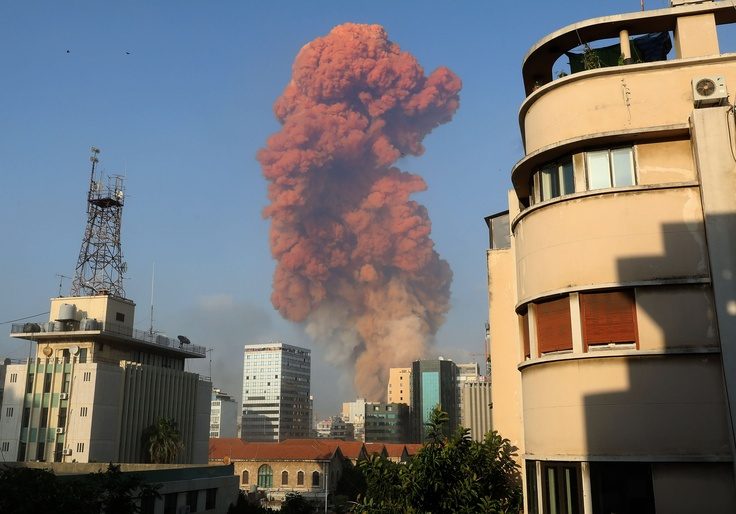A massive explosion wracked Lebanon's capital Tuesday morning, with its origin and damage yet to be fully assessed.
According to one reporter, twin explosions occurred in a 15-minute succession—one near the Beirut port and another within the confines of the city. Several people are reportedly wounded.
The Lebanese interior minister said that the cause of the explosion cannot be determined until further investigation, but initial information indicates that a long-held highly explosive material caused the explosion.
Lebanon has been the site of massive instability in recent months, as tensions with Israel emerge and Lebanese financial institutions fail in large numbers.
Known to harbor staging areas for Hezbollah insurgents, Lebanon has risked inflaming its relationship with Israel. Some experts warn that Hezbollah is laying the "groundwork for a large-scale attack" on the Jewish state, the Washington Free Beacon reported last month. A June Wall Street Journal article predicted a mere "row of trees" along the Israeli-Lebanese border could provoke the next war between the two countries.
Due to corrupt financial institutions, coronavirus, and political paralysis, Lebanon also sports one of the weakest economies in the world. Several major Lebanese banking institutions share links with Hezbollah's illicit finance networks, discouraging international bailout investments. A July Reuters report detailed how the dimming prospects of international aid could potentially plunge the country into even deeper turmoil.
While tracing the origin of the explosion is an ongoing task, some speculate the extent to which it relates to Lebanon's terror-related malfeasance.
"Can't speak to the chemistry, but politically, a frequent cause of large explosions is being a terrorist proxy for Iran," Free Beacon contributor Noah Pollak tweeted.
"[The] Beirut explosion is in [an] area known to be used by Hezbollah for its long-range precision-guided missile project, which Israel publicly calls a red line. I have no specific knowledge, but [I] would be surprised if [the] explosives that detonated were not associated with that project," he added.
